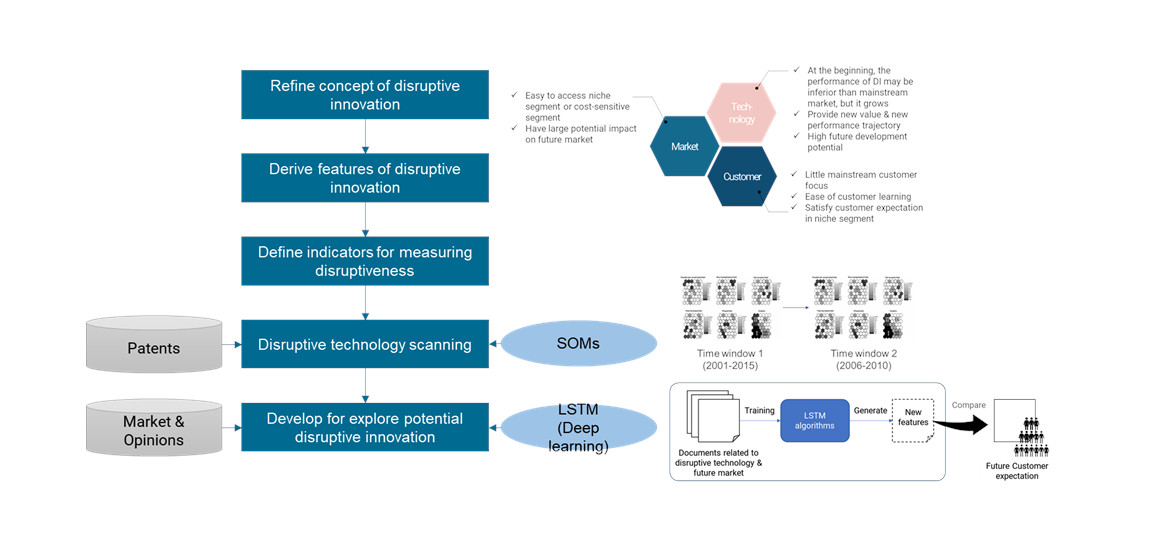Exploring disruptive innovation through deep learning and patent analysis
This project aims explore and predict potential disruptive innovation opportunity. The disruptive innovation opportunity means potential and promising technology and innovation to penetrate and reshape mainstream as well as niche market. In other words, we find answer the questions – first, which technology will penetrate new market? Second, how is this disruptive technology implemented as business?

The main technique to solve these questions are machine learning and deep learning. Deep learning is a technique for learning and inference based on big data and it can solve hard problem in practice without information loss. Especially, it provides ‘right’ insights through iterative learning with high performance improvement. Machine learning and deep learning support are well-suited to deal with various type of data – both structured and unstructured data as coming of big data age.
This project serves as an ex-ante forecasting while considering existing technological paradigm because we will use both unsupervised learning and deep learning such as semi-supervised learning. It enables to early detection and forecasting by accumulating newly generated data not evaluating and classifying after implementing technology.
Project team: Dr Yujin Jeong, Leonidas Aristodemou, Frank Tietze
Related publications
Yujin Jeong, Leonidas Aristodemou, Frank Tietze (2019). Exploring disruptive innovation opportunity using deep learning. The R&D Management 2019 Conference, Paris, France.
